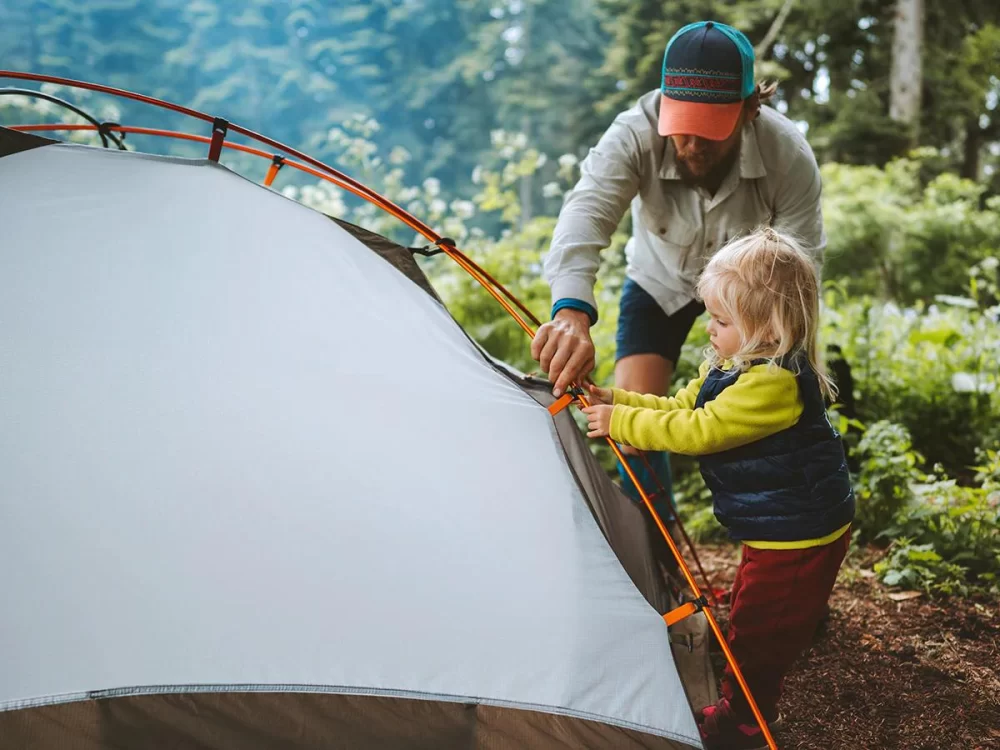Planning to backpack and camp in remote locations? Discover essential tips for safety, survival, and enjoying your outdoor adventure in the wilderness. Explore expert advice on gear, preparation, and navigating the wild.

Preparing for a Remote Backpacking and Camping Adventure
Embarking on a backpacking and camping trip in remote locations can be one of the most thrilling experiences of your life. The chance to disconnect from the hustle of everyday life and immerse yourself in nature is priceless. However, to ensure you have a safe and enjoyable journey, preparation is key. Let me share some tips that have helped me on my adventures in the wild.
1. Planning Your Route and Checking the Weather
Before setting off on your backpacking journey, it's crucial to have a solid plan in place. First, research your route thoroughly. Many remote locations lack clear trail markers, so studying a detailed map or a GPS-enabled device is essential. I always make sure to print out maps and bring them with me, as well as a backup power source for my GPS devices.
Next, always check the weather forecast for the region you're visiting. Conditions can change rapidly in the wilderness, so it's important to be prepared for anything. During one of my trips, I didn’t account for a sudden cold front and ended up battling freezing temperatures in the middle of summer, which made me realize how important weather awareness is.
2. Gear Up Wisely
The right gear can make or break your experience. Start with a durable and comfortable backpack, as it will carry all your necessities for the trip. I personally love lightweight but spacious packs that distribute weight evenly across my shoulders and hips, such as the Osprey Atmos AG, which has been a game-changer for me on longer hikes.
Your shelter, sleeping bag, and cooking gear should be suited to the environment you’re entering. For remote locations, a four-season tent is often a good idea, even if you're not expecting snow. I’ve learned the hard way that lightweight tents sometimes fail to withstand strong winds, so investing in a reliable tent is crucial. Similarly, a down sleeping bag rated for low temperatures has been essential during some of my colder nights in the wild.
3. Pack the Essentials
When it comes to backpacking in remote locations, packing light is important, but not at the expense of crucial items. Here’s a checklist of what I always carry:
- Water filtration system – You’ll likely find water sources along the trail, but it’s important to purify any water before drinking it. I prefer a lightweight water filter like the Sawyer Squeeze for its effectiveness and ease of use.
- First aid kit – Accidents can happen, so having a compact first aid kit with the basics is a must. I’ve had to use it more times than I’d like to admit, especially for small cuts and blisters that occur during long treks.
- Fire-starting equipment – Whether it's matches, a lighter, or a firestarter, being able to make fire is critical for cooking, warmth, and signaling in emergencies.
- Food – Pack lightweight, high-energy foods such as trail mix, dehydrated meals, and energy bars. During my last remote camping trip, I discovered that quick-access snacks kept my energy levels high and spirits up.
4. Navigating and Staying Safe in the Wilderness
When you’re far from civilization, your survival depends on your ability to navigate the terrain and handle unforeseen circumstances. I’ve been in situations where I got slightly off-track, and it’s easy to lose your bearings in unfamiliar terrain. Here are some navigation tips:
- Always have a compass, even if you’re relying on a GPS. Batteries can die, and sometimes technology fails. A reliable compass and map reading skills can help you find your way if this happens.
- Learn the basics of wilderness survival. Knowing how to build a shelter, purify water, and start a fire could save your life in an emergency situation. I once had to build a quick shelter when a storm rolled in unexpectedly, and it made me realize how crucial these skills are.
- Leave a detailed plan with someone back home. Tell them where you’re going, your expected route, and the dates of your trip. This ensures that if something goes wrong, someone will know where to start looking for you.
5. Embrace the Unexpected and Enjoy the Experience
One of the most rewarding aspects of remote camping is the sense of unpredictability. The wildlife you encounter, the changing landscape, and even the occasional storm add a sense of adventure that you can’t find in more populated areas. I remember the time I stumbled upon a herd of elk during a sunset hike – it was such a surreal moment. You just never know what you might come across, so embrace the unknown!
Remote backpacking is a journey of discovery, both of the natural world and of yourself. With the right preparation, gear, and mindset, you'll have the adventure of a lifetime, and the stories to prove it!
Hilton Garden Inn Cartersville
24 Liberty Dr, Cartersville, GA 30121, USA
Visit Location PageFluffy's Family Campground
1251 Tabernacle Church Rd, McBee, SC 29101, USA
Visit Location Page